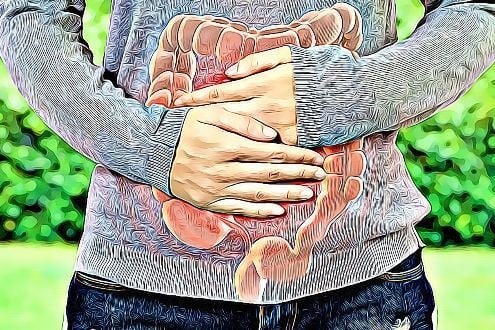12 Science-based Weight-loss & Healing Tips
Simple but effective tips and tricks that will help you lose weight and improve your health.
How big is your plate?
How deep and long is your night's sleep?
Do you eat on the go?
What do your reach for when you're feeling down?
Do you exercise moderately every day?
Do you have a treats drawer?
Do you make a shopping list?
Do you eat baked goods at every meal?
How long do you go between eating?
Do you know how many calories to consume daily?
How often do you eat unprocessed food?
What's your goal for the next 7 days?
Read why these questions are important below. Or click on the LEARN MORE button to watch a video about an exciting new sleep, health and weightloss breakthrough.






12 Science-based Weight-loss Tips
1. Use a smaller plate
Something as simple as serving your food on a smaller plate can actually reduce how much food you eat to feel full. Our image of a ‘good meal’ is often linked to a full plate of food.
If that plate is smaller than you usually use it’s likely that you’ll feel as full when you finish it as you do with any ‘good meal’. Within limits of course – a saucer of food isn’t going to trick your mind!
Look through the dishes in your kitchen and find the smallest dinner plate you own. If they’re all the same size then purchase one a bit smaller especially for your diet.
2. Get more sleep
Lack of sleep has been linked with obesity. So switch off the TV and go to bed at a reasonable hour. Reckon you need 7-8 hours sleep a night.
If you find it hard to get to sleep make sure you feel warm enough in bed. Try reading a book once you’re in bed – not something exciting but something either soothing or non-fiction. History, cooking, religion and how-tos are all good choices. Keep murder mysteries and thrillers for another time of the day.
Deep sleep is a time when the body and mind refresh and reboot their systems. Napping doesn’t have the same effect. So try to have the same bedtime every day so your body gets into a rhythm. Make late nights the exception not the rule. Your natural fat-burning mechanisms will switch on during deep sleep.
3. Sit down when you eat
Make it a personal rule that you never eat whilst standing up. That includes that coffee you grab as you walk to work. Sitting down and seeing our meal in front of us makes us realize exactly what we’re eating. Snacking on the go may be adding extra calories you hardly realize you’re taking.
Make at least one meal a day special. Set the table, draw up a chair, feel relaxed. Encourage family to join you. Leave phones in another room. Make the most of eating. Chew slowly. Sip water. Chat. Be aware of what you are eating. Be grateful. Making mealtimes special makes it all the more difficult to grab another helping of ice-cream from the fridge or thoughtlessly rip open another chocolate bar.
4. Don’t eat when you’re angry
In fact studies indicate that eating when you are under the influence of any strong emotion can mean you change your eating habits.
Now some of us eat less when we’re in love, worried or angry. But if you’re one of the people who eat more when you’re very happy, excited or irritable then find something else to do while you calm down.
The healthiest option is to get out of the house and walk. That will take you away from the fridge and steady your nerves. But you could switch on your favorite music and dance around the room for ten minutes instead. Just keep the kitchen door closed.
5. Get up and get moving
It’s not just the calories you burn when you move more that aids weight loss. Regularly taking exercise such as walking, dancing or time at the gym helps you sleep better. Exercise also improves your mood. It’s what humans were designed to do.
6. Prepare treats ahead of time
Most people were given treats as a child to improve their mood or make up for times when things went wrong. Unfortunately that means as adults we thoughtlessly indulge in treats for the same reasons.
What were you given as a treat when you were young? Probably something heavy in sugar and fat. Because these give us instant energy and make us feel ‘better’ – at least for a short while.
Today you need to change you idea of what a treat means to you. A treat should be something you like but not something that stops you losing the weight.
That means you need to prepare and pack your treats for the day at work or for late evening – whenever you often like a treat. Forget chocolate and sugary items like biscuits and go for chopped carrots, celery, apples or nuts. Add a dip to make them taste better if you need to.
Break the cycle of continuous snacking and treats that leave you listless by the evening and unwilling to cook or eat a balanced healthy meal.
7. Plan your shopping
Make a list of the meals you will eat for the week ahead and take it to the supermarket with you. That way you’ll have all the ingredients you need and no excuse to cook something less healthy because you forgot to get a key ingredient.
And don’t shop when you are hungry. If you’ve already eaten a meal that day you will be able to make better choices as your body is not crying out to be fed NOW!!
8. Restrict carbs not fats or protein
Recent tests have tended to show that if you concentrate on reducing carbs rather than other food groups you will likely lose weight faster and keep that weight off longer.
Carbs give us immediate access to increased energy so of course our bodies love them! It’s like receiving cash without going to work. What’s not to like?
Unfortunately if we don’t use all that energy quickly it gets saved as fat. So unless you are in training for a marathon carbs are probably not your best friend.
Carbs include anything made with flour or sugar. They tend to come along in anything we know will ‘fill us up’. Think rice, pasta and bread. They also tend to be inexpensive.
For all these reasons most of us eat a lot of carbs every day.
Fats and protein release their energy more slowly. The good news is that they keep us feeling full longer. Proteins build muscle mass rather than fat mass. Healthy fats such as olive oil, the fat under the skin of some fish and animal fats such as butter and fatty meats have often been thought of as our enemy. But modern research shows, taken in moderation, these are important ingredients for good health.
Unless you restrict carbs you won’t feel hungry enough for much protein or healthy fats. This is detrimental to your general health as well as likely to increase your weight.
9. Try fasting
Fasting, not eating, is important for our general health and has recently been shown to help weight loss.
Think about it, our hunting and gathering ancestors were always in a food or fasting situation. Regular meals are a modern idea. So our bodies adapted to work well with fasts but may not have had time to catch up with the food anytime you want it way we live today.
Note that many religions encourage fasting at Lent, Ramadan etc.
Intermittent fasting is proving useful for weight loss. You eat only during certain times of the day or the week. A good way to start is to eat two or three meals during one eight hour period then fast (apart from water, or tea and coffee without milk or sugar). So you could plan your meals for between 12 noon and 8pm and skip breakfast (yes, we’ve been duped about breakfast!).
Or if you love a good breakfast then eat between 8am and 4pm and skip a late meal or supper – you’ll wake up ready to leap out of bed and get that breakfast the following day.
Some people severely restrict calories one or even two days a week. This takes more planning and you might feel tired and irritable for the first week or so.
10. Count calories
This is the traditional way to diet. And it works. But most of us have tried this and we give up. That’s because we need to make calculations throughout the day or use an app that gives us the calories of food. Then when we reach a better weight we can’t be bothered to keep counting every little thing and we start overeating again.
But if you are happy to weigh and measure foods and use an app then give it a try. Just plan for increasing calories very slowly once you’re back in shape. So you know the number of calories that push you into weight gain. Weigh yourself at least once a week till you find that sweet spot of weight maintenance.
11. Read the labels and be aware
Years ago dieting was simpler. Eat less bread, potatoes and rice. Try to stop eating baked goods. But that was when our meat came from a butcher and our vegetables were unpackaged.
Today most of us shop at supermarkets where shelf life is important. Much of our food will have travelled a long way to reach us. This means sprays or additives need to be used.
And apart from that we want help with preparing tasty dishes so we want meats and fish in a sauce ready to reheat. We want our vegetables to be semi-prepared and cleanly packaged in plastic. This means that it’s difficult to know exactly what we are eating.
More foods than we imagine have sugar in some form added to improve flavour. Almost all sauces include sugars and less healthy fats. Additives, pesticides and colors all confuse the picture even more.
Add to that our love of take-outs, restaurant meals and family favorites such as burgers and pizza where cheaply produced ingredients are used to keep costs very low.
If you are serious about dieting then go for the unrefined, unprocessed foods on offer. Make those the main part of every meal. If it’s been through any kind of preparation or factory, you’ll need to read the label. Look at the calorie count and dismiss claims of ‘low fat’ or ‘low sugar’.
But it’s not just the calories that might be changing our bodies. Additives and pesticides simply have not been around long enough for us to be absolutely sure they are not only safe but are not pushing our digestive systems out of balance so that we are becoming a world of fat people.
12. Set smaller goals
Studies have shown that people who work step-by-step towards their main goal achieve success more often. That means setting yourself a small weekly goal that inches you slowly towards your ideal weight.
Your goal could be to lose one pound or to fast between certain hours every day or any of the other tips here.
Beware telling yourslef you must lose all your excess weight by a certain date. Instead tell yourself if you reach a small measurable goal after seven days you will feel proud of yourself.
Celebrate these small wins. Nobody climbs a mountain in one very long stride. They congratulate themselves on every step they take that gets them nearer the top.
Copyright 2022 by Better My Best. All rights reserved.
This site is not a part of the Youtube website or Youtube Inc. Additionally, This site is NOT endorsed by Youtube in any way. YOUTUBE is a trademark of YOUTUBE, Inc.
